Quote about mental health awareness – “The greatest weapon against stress is our ability to choose one thought over another.” – William James. This quote encapsulates the essence of mental health awareness. It reminds us that we have the power to control our thoughts and reactions, ultimately influencing our overall well-being.
Mental health is an integral part of our overall health, encompassing our emotional, psychological, and social well-being. It affects how we think, feel, and behave, impacting our daily lives and relationships. Unfortunately, mental health conditions are often stigmatized, leading to silence, shame, and a lack of support for those who need it most.
This stigma prevents individuals from seeking help and hinders progress in addressing these issues.
Understanding mental health conditions is crucial to breaking down these barriers. Anxiety, depression, and post-traumatic stress disorder (PTSD) are just a few examples of common mental health challenges. Statistics reveal that these conditions affect millions worldwide, highlighting the urgent need for increased awareness and accessible resources.
Seeking professional help is essential for managing mental health issues and promoting recovery. By understanding the nature of these conditions, we can create a more supportive and understanding environment for those who struggle.
The Importance of Mental Health Awareness
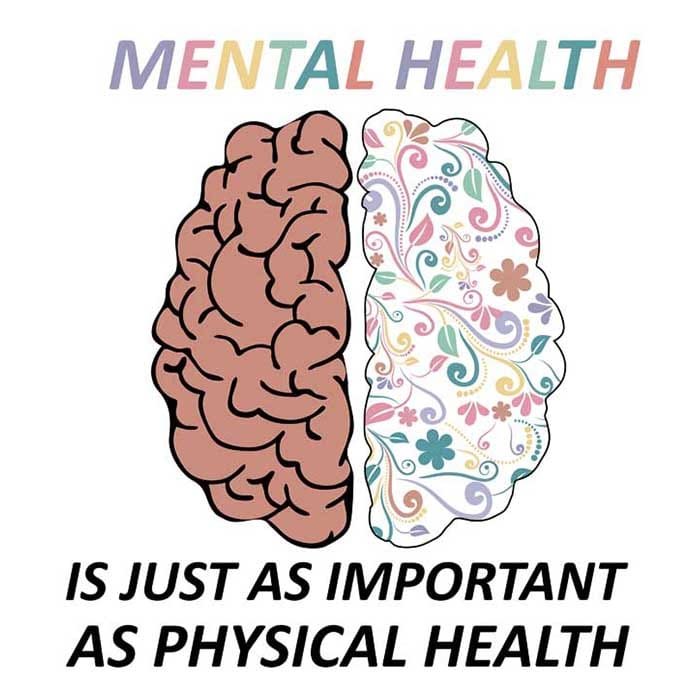
Mental health is an integral part of overall well-being, encompassing our emotional, psychological, and social health. It influences how we think, feel, and behave, impacting our ability to cope with daily life’s stresses and challenges. Just like physical health, mental health requires attention and care to maintain a fulfilling and balanced life.
The Impact of Mental Health Stigma
Mental health stigma refers to the negative attitudes, beliefs, and behaviors towards individuals with mental health conditions. It can lead to discrimination, isolation, and prevent people from seeking help. The stigma surrounding mental illness often stems from a lack of understanding and awareness, contributing to feelings of shame and fear.
- Social Isolation: Stigma can isolate individuals with mental health conditions, preventing them from connecting with others and seeking support. This isolation can worsen symptoms and contribute to feelings of loneliness and despair.
- Delayed Treatment: Fear of judgment and discrimination can deter individuals from seeking professional help, leading to delayed diagnosis and treatment. This delay can have a significant impact on the severity and duration of mental health conditions.
- Discrimination: Individuals with mental health conditions may face discrimination in various aspects of life, including employment, education, and social interactions. This discrimination can limit opportunities and exacerbate existing challenges.
Promoting Positive Change Through Mental Health Awareness
Raising awareness about mental health is crucial to combat stigma and promote positive change. Increased awareness can lead to greater understanding, acceptance, and support for individuals with mental health conditions.
- Breaking Down Stigma: By educating the public about mental health conditions, we can challenge negative stereotypes and promote empathy and understanding. This can create a more supportive and inclusive environment for individuals struggling with mental health.
- Encouraging Help-Seeking Behavior: Raising awareness can encourage individuals to seek help when they need it, reducing the stigma associated with mental health treatment. This can lead to earlier intervention and improved outcomes.
- Investing in Mental Health Services: Increased awareness can lead to greater investment in mental health services, ensuring access to quality care for all individuals. This investment can include expanding access to mental health professionals, developing innovative treatment approaches, and promoting mental health education in schools and communities.
Understanding Mental Health Conditions
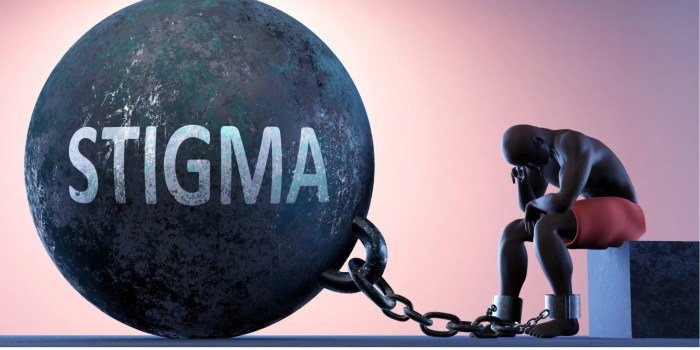
Mental health conditions are common and affect people of all ages, backgrounds, and walks of life. It’s essential to understand these conditions to break down stigma and support those who need help.
Common Mental Health Conditions
Understanding the prevalence and nature of common mental health conditions is crucial for promoting awareness and encouraging help-seeking behavior.
- Anxiety: A common condition characterized by excessive worry, fear, and nervousness. People with anxiety may experience physical symptoms such as rapid heartbeat, sweating, and difficulty breathing.
- Depression: A mood disorder characterized by persistent feelings of sadness, hopelessness, and loss of interest in activities once enjoyed.
People with depression may experience changes in appetite, sleep, and energy levels.
- Post-Traumatic Stress Disorder (PTSD): A mental health condition that can develop after a traumatic event. Symptoms can include flashbacks, nightmares, avoidance of triggers, and difficulty concentrating.
Prevalence of Mental Health Disorders
Mental health disorders are prevalent worldwide, affecting a significant portion of the population.
- Anxiety Disorders: According to the World Health Organization (WHO), anxiety disorders are the most common mental illness worldwide, affecting an estimated 264 million people.
- Depressive Disorders: The WHO estimates that over 280 million people globally suffer from depressive disorders.
- PTSD: The US Department of Veterans Affairs reports that around 7-8% of the US population will experience PTSD in their lifetime.
Seeking Professional Help, Quote about mental health awareness
It is crucial to seek professional help if you are experiencing mental health issues. Mental health professionals can provide support, guidance, and treatment options tailored to your individual needs.
“Seeking help for mental health issues is a sign of strength, not weakness.”
Promoting Mental Health Awareness
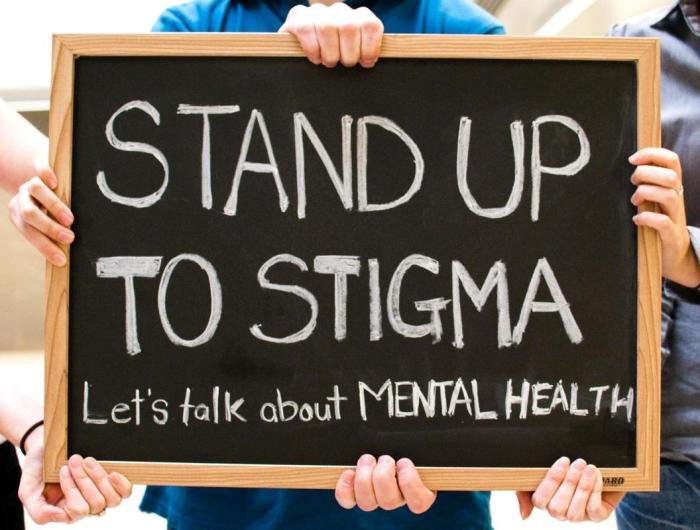
Mental health awareness is crucial for creating a supportive and inclusive society. It involves understanding the importance of mental well-being, recognizing the signs of mental health conditions, and reducing the stigma surrounding these conditions. By promoting mental health awareness, we can encourage individuals to seek help when needed and foster a culture of empathy and support.
Campaign Design for Mental Health Awareness
Designing a campaign to raise awareness about mental health in a community requires careful planning and execution. It should be engaging, informative, and tailored to the specific needs and interests of the target audience. Here are some key elements of an effective mental health awareness campaign:
- Target Audience:Identify the specific groups within the community that the campaign aims to reach. This could include young people, seniors, people with disabilities, or specific ethnic groups. Understanding the needs and interests of the target audience is crucial for tailoring the message and choosing appropriate channels for communication.
- Clear Message:The campaign should have a clear and concise message that effectively communicates the importance of mental health awareness. This message should be relatable, engaging, and easy to understand. For example, the campaign could focus on the importance of self-care, the prevalence of mental health conditions, or the benefits of seeking help.
- Engaging Activities:To effectively promote mental health awareness, the campaign should involve interactive and engaging activities. These activities could include workshops, seminars, public speaking events, social media campaigns, or community events. The aim is to create opportunities for people to learn about mental health, share their experiences, and connect with others.
- Resources and Support:The campaign should provide information about available resources and support services for individuals struggling with mental health. This could include contact information for mental health professionals, support groups, or online resources. Providing access to these resources empowers individuals to take control of their mental well-being and seek help when needed.
The quote “It’s okay to not be okay” reminds us that acknowledging our mental health struggles is a crucial step towards healing. While life can feel overwhelming at times, there’s still all the beauty in the world to appreciate. Taking time to find joy in simple things, like a sunset or a good book, can be a powerful reminder that we’re not alone and that there’s hope for brighter days ahead.
Remember, it’s okay to not be okay, and reaching out for support can make a world of difference.
- Collaboration and Partnerships:Collaborating with local organizations, schools, businesses, and community leaders can amplify the campaign’s reach and impact. These partnerships can provide valuable resources, support, and access to diverse audiences. Working together can create a more comprehensive and effective approach to promoting mental health awareness.
Resources for Mental Health
Individuals struggling with mental health can benefit from accessing a variety of resources and support services. These resources can provide information, guidance, and support in managing mental health conditions.Here are some key resources available for individuals struggling with mental health:
- Mental Health Professionals:Psychologists, psychiatrists, and other mental health professionals provide specialized treatment and support for mental health conditions. They can offer therapy, medication management, and other evidence-based interventions.
- Support Groups:Support groups provide a safe and supportive environment for individuals to connect with others who share similar experiences. These groups offer peer support, empathy, and a sense of community. There are support groups for a wide range of mental health conditions, including anxiety, depression, and substance abuse.
- Online Resources:Numerous online resources provide information, support, and tools for managing mental health. These resources include websites, apps, and online communities dedicated to mental health awareness and support. They can offer self-help strategies, coping mechanisms, and access to mental health professionals.
- Hotlines and Crisis Services:Hotlines and crisis services provide immediate support and resources for individuals experiencing mental health emergencies. They offer confidential and anonymous support, crisis intervention, and referrals to mental health professionals.
- Government Agencies:Government agencies, such as the National Institute of Mental Health (NIMH) and the Substance Abuse and Mental Health Services Administration (SAMHSA), provide information, funding, and resources for mental health research, treatment, and prevention. They also offer support and guidance for individuals and families struggling with mental health conditions.
The quote “Mental health is not a sign of weakness, nor is seeking help” is a powerful reminder that taking care of our well-being is essential. Vanderbilt Health One Hundred Oaks, located at https://healthbeautynfitness.com/vanderbilt-health-one-hundred-oaks-2/ , offers a wide range of resources and support services to help individuals address their mental health needs.
By prioritizing mental health and seeking help when needed, we can create a more supportive and understanding environment for everyone.
Promoting Mental Well-being in Everyday Life
Mental well-being is an essential aspect of overall health and can be promoted through various strategies in everyday life. These strategies can help individuals manage stress, enhance resilience, and improve their overall mental health.Here are some practical tips for promoting mental well-being in everyday life:
- Practice Self-Care:Engaging in activities that promote physical and mental well-being is crucial for maintaining mental health. This could include getting enough sleep, eating a healthy diet, exercising regularly, and engaging in hobbies or activities that bring joy and relaxation.
- Manage Stress:Stress is a common factor that can negatively impact mental health. Developing healthy coping mechanisms for managing stress is essential. These strategies could include exercise, meditation, yoga, spending time in nature, or talking to a trusted friend or family member.
- Connect with Others:Social connections are vital for mental well-being. Maintaining strong relationships with family, friends, and community members can provide support, reduce loneliness, and promote a sense of belonging.
- Practice Gratitude:Focusing on the positive aspects of life can enhance mood and well-being. Practicing gratitude by reflecting on things you are thankful for can promote a more positive outlook and reduce negative thoughts.
- Set Realistic Goals:Setting achievable goals and celebrating small victories can boost self-esteem and motivation. Breaking down large goals into smaller, manageable steps can make them feel less overwhelming and increase the likelihood of success.
- Seek Professional Help:If you are struggling with mental health, don’t hesitate to seek professional help. Mental health professionals can provide evidence-based interventions, support, and guidance in managing your condition.
Inspiring Quotes on Mental Health: Quote About Mental Health Awareness
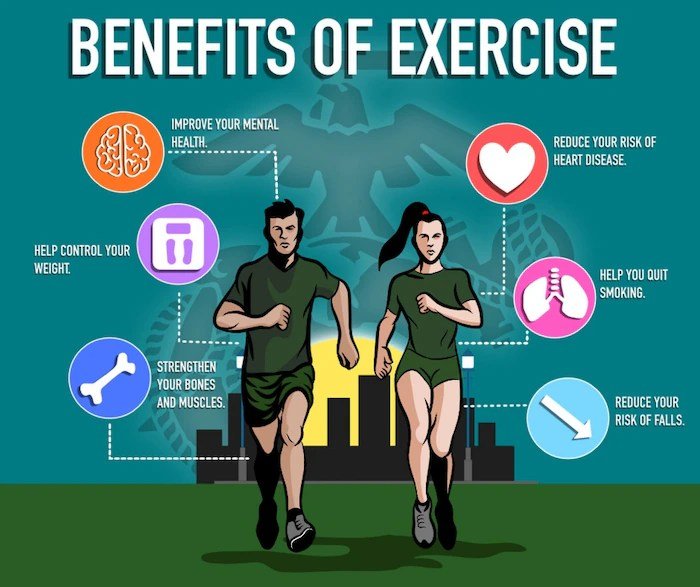
Quotes about mental health can offer a powerful lens through which to understand and appreciate the complexities of our emotional well-being. They can provide solace, encouragement, and a sense of shared experience, reminding us that we are not alone in our struggles.
These words can inspire us to prioritize our mental health, seek support when needed, and cultivate resilience in the face of challenges.
Quotes on Mental Health
Here are some inspiring quotes that highlight the importance of mental health:
| Quote | Author | Context | Impact |
|---|---|---|---|
| “Mental health is not a destination, but a process. It’s about how you drive, not where you’re going.” | Dr. Alex Lickerman | This quote emphasizes that mental health is an ongoing journey, not a fixed state. | It encourages individuals to focus on their mental well-being as a continuous process, rather than a goal to be achieved. |
| “You don’t have to control your thoughts, you just have to stop letting them control you.” | Dan Millman | This quote emphasizes the importance of being aware of our thoughts and not letting them dictate our emotions and actions. | It empowers individuals to take control of their mental well-being by learning to manage their thoughts effectively. |
| “Mental health is just as important as physical health. We need to take care of our minds and bodies.” | Unknown | This quote highlights the interconnectedness of mental and physical health, emphasizing the need to prioritize both. | It encourages individuals to view mental health as an essential component of overall well-being and to seek support when needed. |
| “It’s okay to not be okay. It’s okay to struggle. It’s okay to ask for help.” | Unknown | This quote normalizes the experience of mental health challenges and encourages individuals to seek support when needed. | It reduces stigma and promotes a culture of openness and acceptance around mental health. |
Mental Health Awareness in the Media
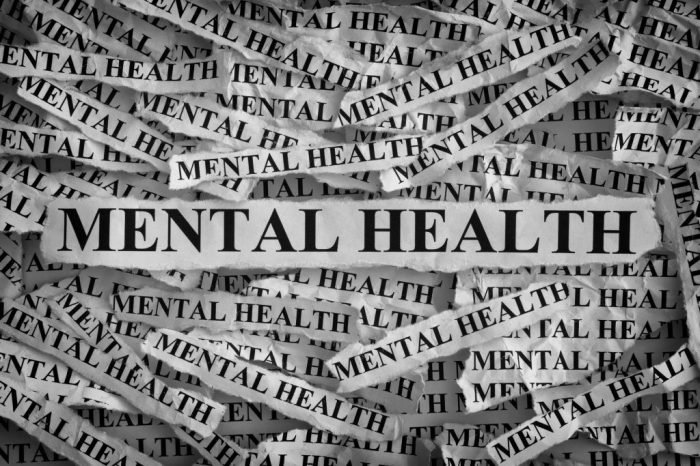
The media plays a crucial role in shaping public perception of mental health. It can influence how people understand, perceive, and respond to mental health issues. The portrayal of mental health in popular culture, including movies, TV shows, books, and news articles, can have a significant impact on how individuals view and interact with those experiencing mental health challenges.
The Influence of Media on Public Perception of Mental Health
The media has the power to influence public opinion and attitudes towards mental health. It can either promote understanding and acceptance or perpetuate stigma and misinformation.
- Positive Representations:When mental health is portrayed realistically and sensitively, it can help reduce stigma and encourage individuals to seek help. Positive representations can normalize mental health challenges, showing that they are common experiences that can be managed with support.
- Negative Representations:On the other hand, negative portrayals can reinforce stereotypes and misconceptions about mental health, leading to fear, discrimination, and reluctance to seek help. Examples include portraying individuals with mental illness as dangerous, unpredictable, or solely defined by their condition.
Examples of Positive and Negative Representations of Mental Health in the Media
- Positive Representation:The movie “Silver Linings Playbook” (2012) depicts bipolar disorder in a nuanced and realistic way, showcasing the challenges and triumphs of living with the condition. The film’s focus on the protagonist’s journey toward recovery and his relationships with family and friends offers a positive portrayal of mental illness and the importance of support systems.
- Negative Representation:The portrayal of mental illness in the movie “The Silence of the Lambs” (1991) reinforces the stereotype of individuals with mental illness as inherently dangerous and unpredictable. The film’s focus on the antagonist’s violent actions, without exploring the complexities of his mental health condition, contributes to the fear and misunderstanding associated with mental illness.
Mental Health Advocacy

Advocating for mental health is crucial because it helps to ensure that everyone has access to the resources and support they need to live fulfilling lives. By raising awareness, challenging stigma, and pushing for policy changes, mental health advocates play a vital role in creating a more equitable and supportive society for those living with mental health conditions.
Strategies for Promoting Mental Health Awareness through Advocacy
Advocacy efforts can take many forms, each with its own unique approach to promoting mental health awareness and driving positive change. Here are some effective strategies:
- Public Speaking and Education: Sharing personal stories, delivering presentations, and engaging in public forums can help educate others about mental health and break down stigma. This approach can be particularly impactful when delivered by individuals with lived experience of mental health conditions.
- Community Outreach and Engagement: Engaging with local communities through events, workshops, and support groups can help create a sense of belonging and provide opportunities for people to connect with resources. These initiatives can be organized by individuals, organizations, or government agencies.
- Policy Advocacy: Working with policymakers to advocate for legislation that supports mental health services, research, and funding is crucial. This involves lobbying for increased funding for mental health programs, advocating for the implementation of evidence-based practices, and pushing for policies that reduce stigma and discrimination.
- Media Advocacy: Utilizing media platforms to raise awareness about mental health issues and challenge negative stereotypes is a powerful tool. This can involve writing articles, sharing stories on social media, or participating in interviews to promote positive narratives about mental health.
- Social Media Campaigns: Leveraging the reach of social media to spread awareness about mental health issues, share resources, and connect with others can be highly effective. Engaging in conversations, using relevant hashtags, and creating compelling content can help amplify the message and reach a wider audience.
Examples of Successful Mental Health Advocacy Initiatives
Numerous organizations and individuals have made significant contributions to mental health advocacy, leading to positive changes in policies, attitudes, and access to services.
- The National Alliance on Mental Illness (NAMI): NAMI is a grassroots mental health organization that provides support, education, advocacy, and public awareness programs. They have been instrumental in promoting mental health awareness, advocating for increased funding for research and treatment, and reducing stigma associated with mental illness.
A famous quote reminds us that “Mental health is not a destination, but a journey.” It’s important to prioritize your well-being, and finding the right health plan can be a key step. If you’re in NYC, you can explore the best NYC health plans to ensure you have the coverage you need to navigate this journey.
- The Jed Foundation: This organization focuses on preventing suicide and promoting mental health among young adults. They develop and implement evidence-based programs, advocate for policy changes, and raise awareness about mental health issues through educational campaigns.
- The Trevor Project: This organization provides crisis intervention and suicide prevention services to LGBTQ youth. They have been instrumental in advocating for policies that protect LGBTQ youth from discrimination and promoting mental health awareness within the LGBTQ community.
The Future of Mental Health Awareness

The future of mental health awareness is bright, promising a more inclusive and understanding society. Advancements in technology, research, and societal attitudes are paving the way for a future where mental health is prioritized and stigma is minimized.
Emerging Trends and Innovations in Mental Health Care
The landscape of mental health care is rapidly evolving, with new trends and innovations emerging to enhance treatment and support.
- Personalized Mental Health Care:Tailoring treatment plans to individual needs and preferences is becoming increasingly common. This involves considering factors such as personal history, cultural background, and lifestyle to create more effective and personalized care.
- Digital Mental Health Tools:Apps, online platforms, and wearable devices are transforming mental health care. These tools offer convenient access to therapy, mindfulness exercises, and self-monitoring resources, promoting early intervention and ongoing support.
- Integration of Mental Health into Primary Care:Integrating mental health services into primary care settings is becoming increasingly prevalent. This approach aims to break down barriers to access and ensure that mental health needs are addressed alongside physical health concerns.
- Focus on Prevention and Early Intervention:Efforts to prevent mental health issues and intervene early are gaining momentum. This includes promoting mental well-being through education, community programs, and early identification and support for at-risk individuals.
The Role of Technology in Promoting Mental Health Awareness
Technology plays a crucial role in promoting mental health awareness and accessibility.
- Social Media Advocacy:Social media platforms have become powerful tools for raising awareness about mental health issues, sharing personal stories, and connecting individuals with resources.
- Online Support Groups:Online support groups provide a safe and accessible space for individuals to connect with others who understand their experiences and offer peer support.
- Telehealth:Telehealth services allow individuals to access therapy and mental health support remotely, expanding access to care, especially in rural areas or for individuals with mobility challenges.
- Mental Health Apps:Apps designed for mental health offer a variety of tools and resources, including guided meditation, cognitive behavioral therapy exercises, and self-assessment tools.
Concluding Remarks
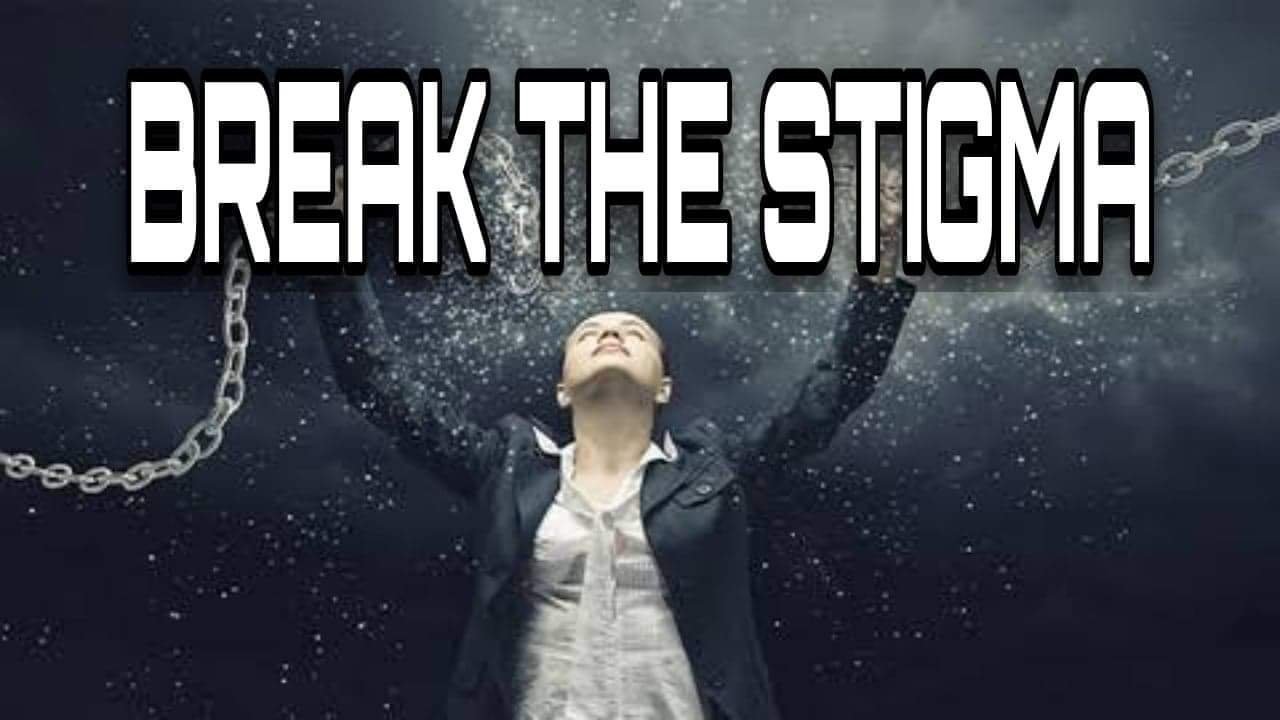
Promoting mental health awareness is a collective responsibility. By embracing empathy, understanding, and action, we can create a society where mental health is prioritized and supported. We can all contribute to this effort through simple yet impactful actions like starting conversations, challenging stigma, and providing resources to those in need.
The future of mental health awareness lies in continued progress, fueled by research, innovation, and a collective commitment to prioritizing mental well-being. Technology plays a crucial role in expanding access to information, resources, and support systems. By embracing technology, we can empower individuals and communities to navigate mental health challenges with greater confidence and resilience.
User Queries
What are some common mental health conditions?
Common mental health conditions include anxiety, depression, bipolar disorder, obsessive-compulsive disorder (OCD), post-traumatic stress disorder (PTSD), and schizophrenia.
How can I promote mental health awareness in my community?
You can organize events, workshops, or fundraisers to raise awareness. You can also share resources, volunteer at mental health organizations, or simply start conversations about mental health.
Where can I find resources for mental health support?
There are numerous resources available, including mental health hotlines, online support groups, and mental health professionals. You can find a list of resources on websites like the National Alliance on Mental Illness (NAMI) or the American Psychological Association (APA).